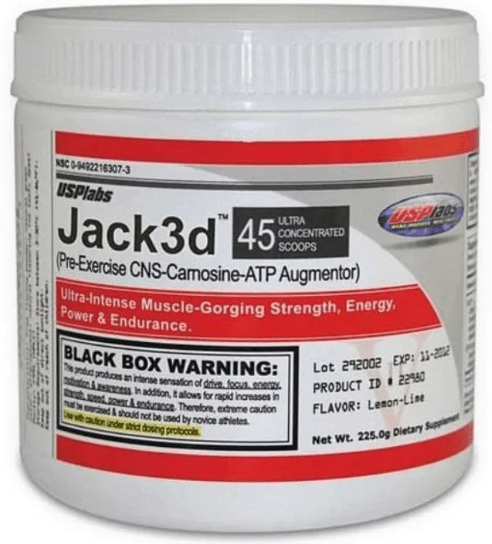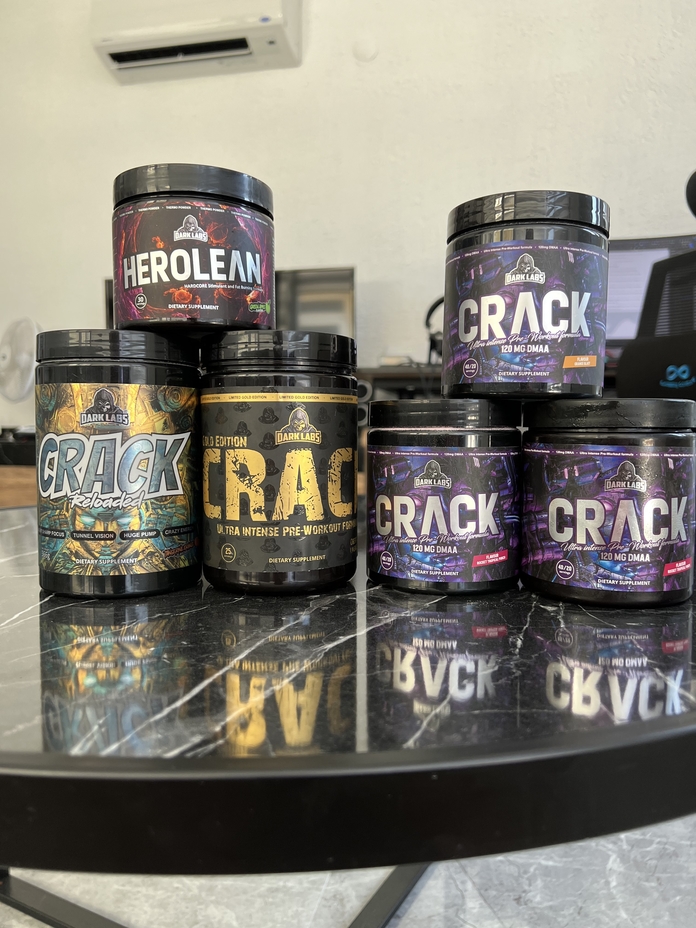
Over the past decade or so, DMAA has been a subject of intrigue and controversy.
This compound, known for its potent stimulant effects, has been linked to various experiences, from heightened energy to a sense of euphoria.
But what does science say about these claims?
Let's dive into the facts.
DMAA, or 1,3-dimethylamylamine, is a powerful stimulant found initially in geranium plants but now primarily synthesized in labs.
It's been touted for its ability to enhance workouts and induce a state of euphoria.
However, its safety and legality have been subjects of ongoing debate.

DMAA, also known as methylhexanamine, is a compound that was initially used as a nasal decongestant in the mid-20th century.
It was later adopted by the fitness community for its stimulant properties, similar to caffeine and ephedrine.
The compound is often found in pre-workout supplements and fat burners, despite being banned by several health organizations due to potential health risks.
The story of DMAA begins with geranium plants. Early research suggested that DMAA was a natural compound found in these plants.
However, later studies, including this one, have disputed this claim, suggesting that the DMAA found in supplements is likely synthesized in labs.

DMAA, also known as 1,3-dimethylamylamine, is a stimulant that was once a common ingredient in sports supplements.
It's known for its ability to increase energy, focus, and endurance, making it a popular choice among athletes.
If you're interested in learning more about DMAA and its supplements, check out our comprehensive guide on the Best DMAA Supplements.
DMAA has been lauded for its ability to enhance physical performance and mental focus.
It's often used in pre-workout supplements to boost energy and endurance.
Some users also report a sense of euphoria or heightened happiness when taking DMAA.
However, it's important to note that these effects can vary greatly among individuals.
One of the most intriguing aspects of DMAA is its reported ability to induce a state of euphoria.
This is likely due to its stimulant properties, which can increase dopamine levels in the brain.
Dopamine is a neurotransmitter associated with pleasure and reward, which could explain some users' euphoric feelings.
However, more research is needed to understand this effect fully.

DMAA works by stimulating the central nervous system.
It increases the release of certain neurotransmitters, such as dopamine and norepinephrine, which are chemicals that transmit signals in the brain.
This stimulation leads to increased heart rate, blood pressure, and heightened mental alertness and energy.
This mechanism is one of the reasons why DMAA is often found in pre-workout supplements. For a more detailed explanation, look at our article on What is DMAA Pre Workout.
Euphoria and DMAA
The euphoric effects of DMAA are likely due to its impact on dopamine levels in the brain.
Dopamine is often referred to as the "feel-good" neurotransmitter because of its role in pleasure and reward.
When dopamine levels are elevated, as they are after taking DMAA, it can create a feeling of euphoria, or intense happiness and excitement.
However, it's important to note that these effects can vary greatly from person to person, and not everyone who takes DMAA will experience euphoria.
Some people may experience negative side effects, such as anxiety, restlessness, or even panic attacks.
Safety and Legality
DMAA has been linked to serious health risks, including heart attacks and strokes, and it's been banned in several countries, including the United States.
Despite this, it's still available in some dietary supplements and can be purchased online.
It's important to use caution when considering DMAA, and to consult with a healthcare provider before starting any new supplement regimen.
DMAA is a powerful stimulant that increases the release of certain neurotransmitters in the brain.
It can create a feeling of euphoria, but it's also associated with serious health risks and is banned in several countries.

DMAA, or 1,3-dimethylamylamine, is a synthetic compound often used in dietary supplements, particularly those aimed at weight loss or bodybuilding.
Its mechanism of action is not fully understood, but it is believed to have stimulant effects similar to amphetamines.
DMAA stimulates the central nervous system, increasing heart rate and blood pressure.
This can result in increased energy, focus, and alertness.
These effects are why DMAA is often found in pre-workout supplements and weight loss products.
DMAA is also believed to impact the levels of certain neurotransmitters in the brain.
Neurotransmitters are chemical messengers that transmit signals throughout the body, helping to regulate a wide range of functions and processes.
One neurotransmitter that DMAA may affect is dopamine, which plays a role in how we feel pleasure.
By increasing dopamine levels, DMAA could potentially create a feeling of euphoria or intense happiness.
This is one possible explanation for the mood-enhancing effects that some users report.
Another potential mechanism of action for DMAA is vasoconstriction, or the narrowing of blood vessels.
By causing vasoconstriction, DMAA could increase blood pressure and reduce blood flow to certain parts of the body.
This could potentially enhance the user's focus and reduce sensations of pain or fatigue, allowing them to work out for longer periods of time.
It's important to note that while DMAA can have potent effects, it also carries potential risks.
The stimulant effects of DMAA can put significant strain on the heart, potentially leading to heart attacks or strokes.
DMAA can also cause a range of side effects, including headaches, dizziness, and anxiety.
Furthermore, because DMAA is a synthetic compound, it's not found in any natural food sources, and the long-term effects of its use are not well understood.
In summary, while DMAA can potentially enhance workout performance and mood, its exact mechanism of action is not fully understood, and its use carries significant risks.
As such, it's important to consult with a healthcare provider before using products that contain DMAA.

Like any stimulant, DMAA can have side effects.
These can include increased heart rate, blood pressure, and risk of cardiovascular events.
It can also interact with other stimulants, potentially increasing these risks.
Some users have reported feeling jittery or anxious after taking DMAA.
It's important to consult with a healthcare provider before starting any new supplement regimen.
DMAA is often described as more potent than other stimulants like caffeine or ephedrine.
However, it's also associated with more potential risks, which has led to its ban in several countries and by sports organizations.
It's crucial to weigh these risks against potential benefits when considering DMAA. Read more about how DMHA compares to DMAA.
DMAA may benefit those looking for a potent pre-workout boost or a way to enhance mental focus.
However, due to its potential risks, it's not recommended for those with heart conditions, high blood pressure, or sensitivity to stimulants.
Due to its potent stimulant effects and potential health risks, DMAA should be avoided by those with cardiovascular conditions, high blood pressure, or a sensitivity to stimulants.
It's also not recommended for pregnant or breastfeeding women.
While DMAA has been banned in many countries due to concerns about its safety, it's still possible to find supplements that contain this ingredient.
If you're interested in trying DMAA for yourself, we've put together a guide on Where to Get DMAA, which provides information on how to purchase these supplements safely and legally.
The quality of DMAA is a mixed bag with this source. Be aware that it won't be the same for every batch. Some users report it works, some say it's bunk. Turn any caffeinated pre-workout into an exotic one with bulk DMAA from BulkStimulants.
The only downside is that you need a milligram scale or you won't be able to accurately measure it but you'll have months worth of DMAA.
This is the same site that supplies the mood enhancing Eria Jarensis, and the aggressive stimulant Amp Citrate.
Does DMAA really cause euphoria?
While some users report euphoria when taking DMAA, this effect can vary greatly among individuals. It's also important to note that these reports are anecdotal and more research is needed to understand this effect fully.
Is DMAA safe to use?
DMAA can have serious side effects, including increased heart rate and blood pressure. It's been banned by several health organizations due to these risks. Always consult with a healthcare provider before starting any new supplement regimen.
Can I take DMAA with other stimulants?
Combining DMAA with other stimulants can increase the risk of side effects. It's recommended to avoid this combination unless under the guidance of a healthcare provider.
Is DMAA legal?
The legality of DMAA varies by country. In the United States, it's currently classified as a dietary supplement, but its status is subject to change as more research is conducted.
How does DMAA compare to other stimulants?
DMAA is often described as more potent than other stimulants like caffeine or ephedrine. However, it's also associated with more potential risks.
DMAA is a potent stimulant that's been linked to enhanced workouts and a sense of euphoria.
However, its safety and legality are subjects of ongoing debate.
As with any supplement, it's crucial to weigh the potential benefits against the risks and to consult with a healthcare provider before starting a new regimen.
Useful Links
 About FitFrek
About FitFrekFitFrek operates as an independent platform, offering comprehensive workouts, programs, routines, guides, and unbiased reviews to accelerate your progress. We pride ourselves on our honesty, delivering straightforward and candid insights. FitFrek does not offer medical advice, diagnosis, or treatment services.